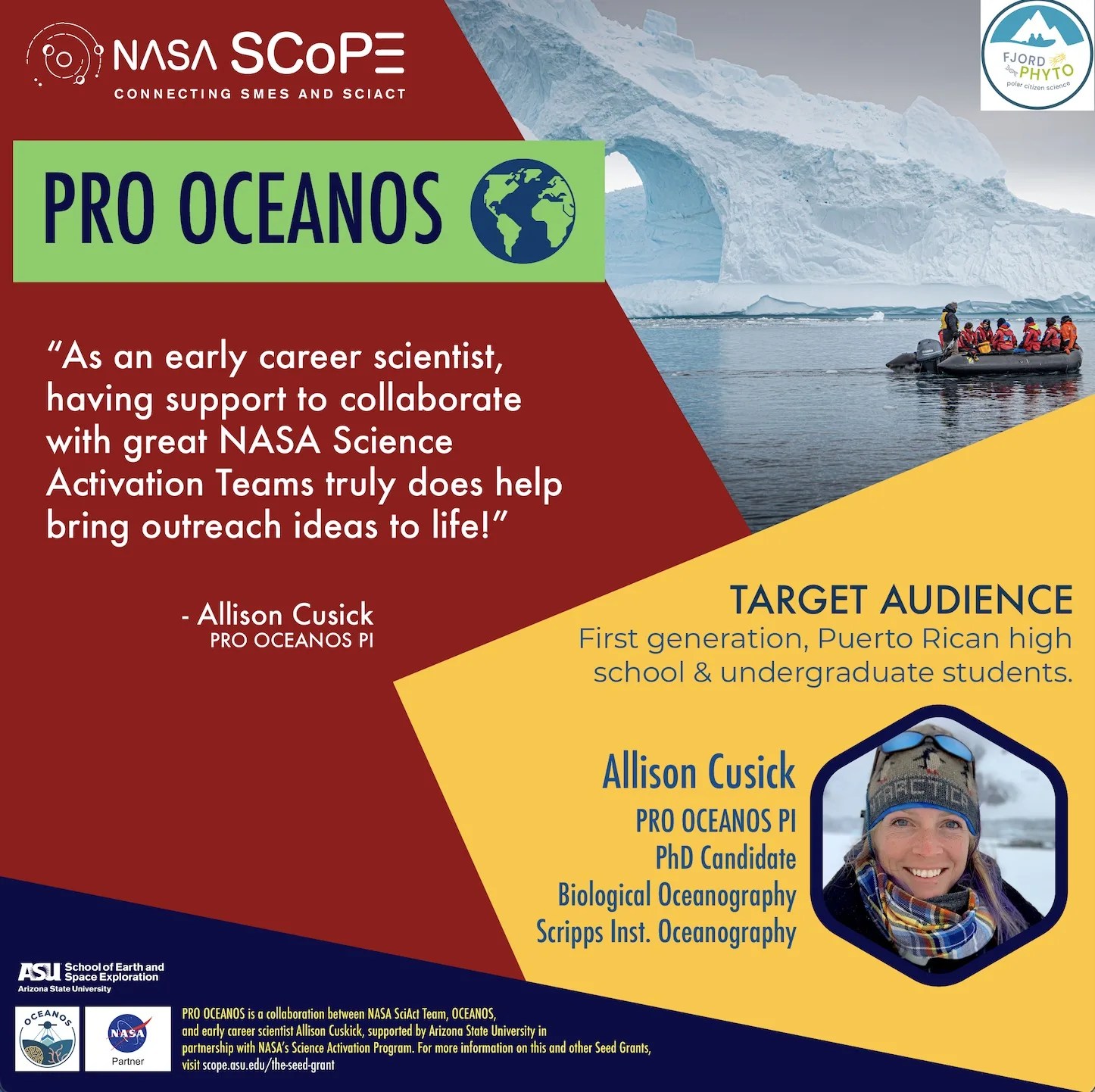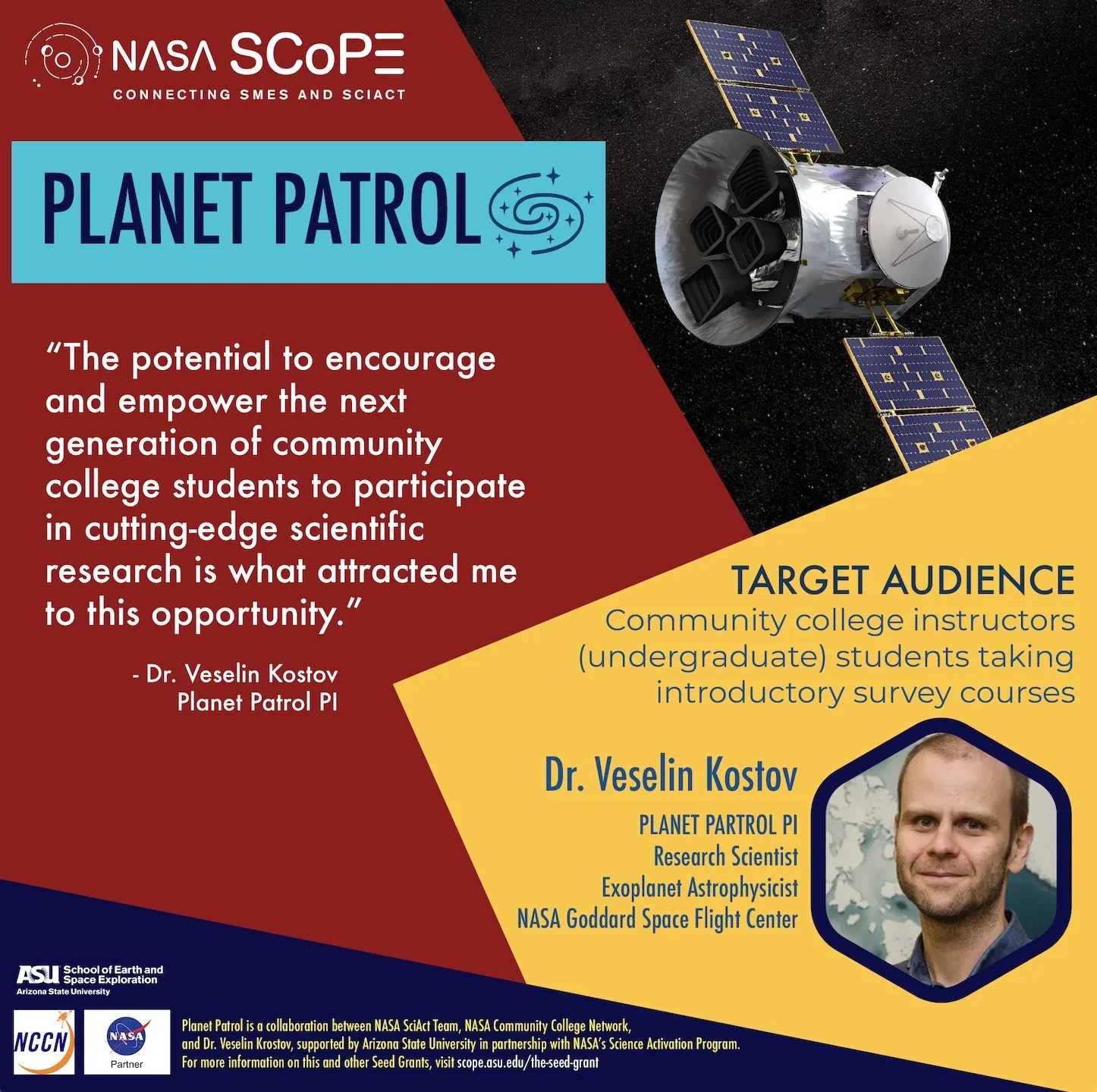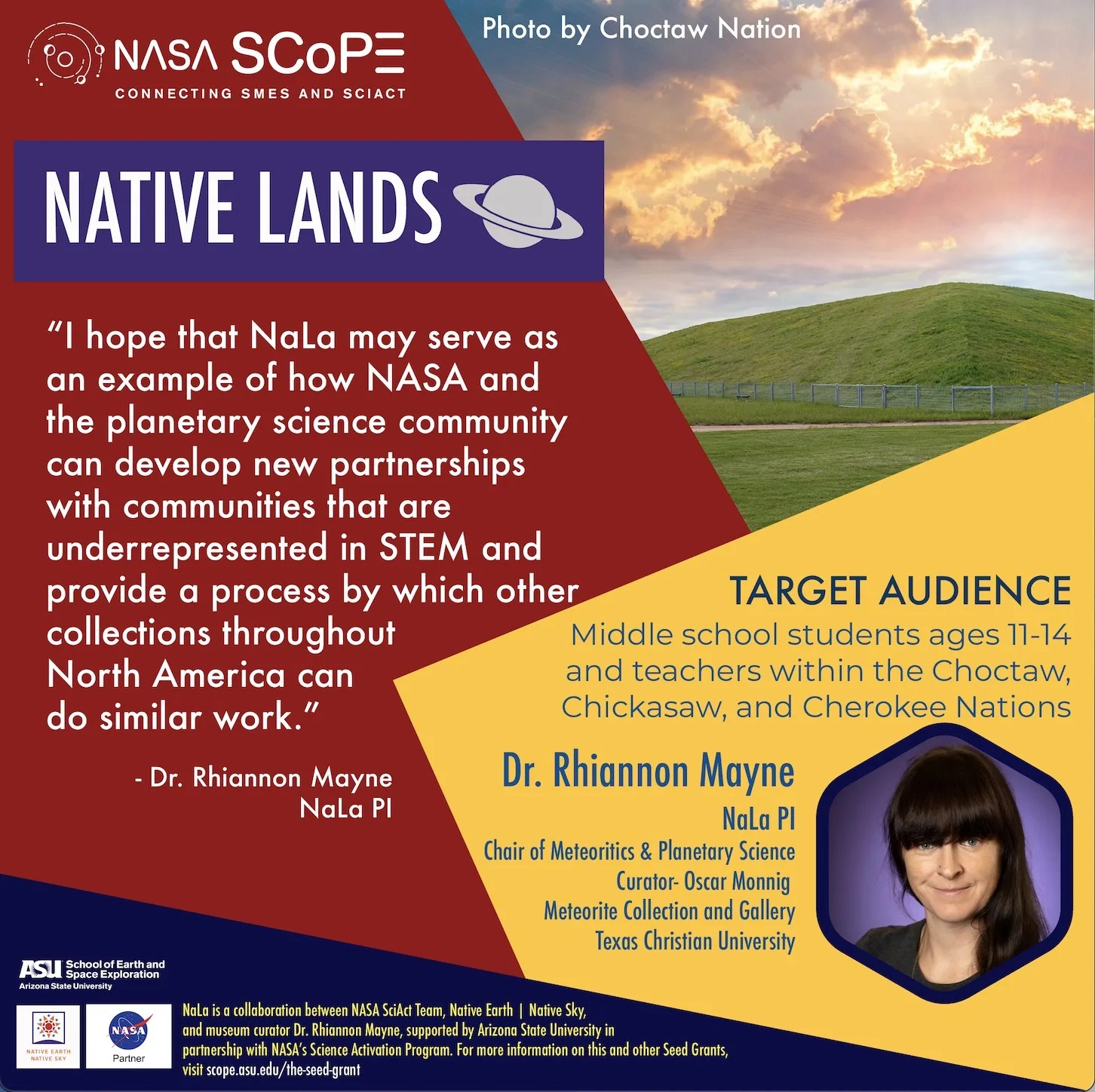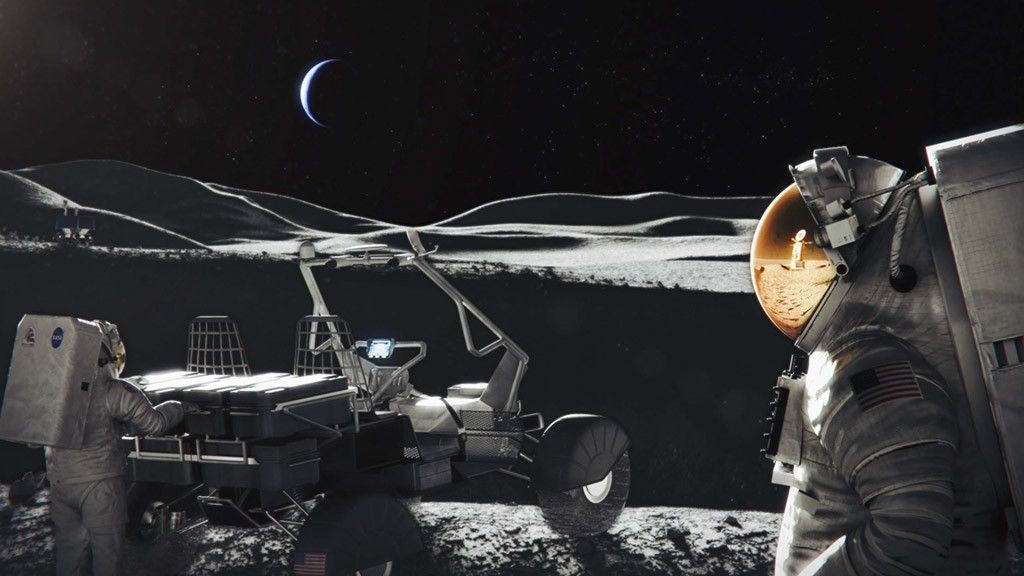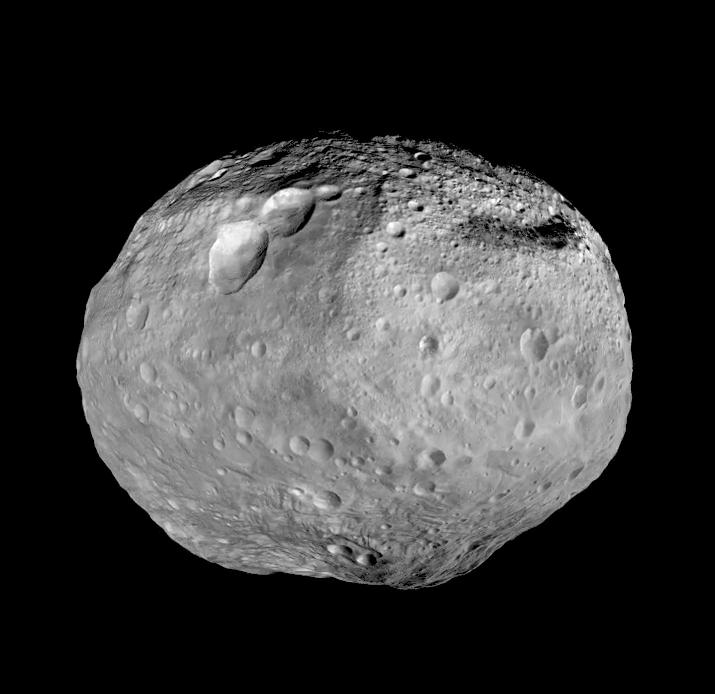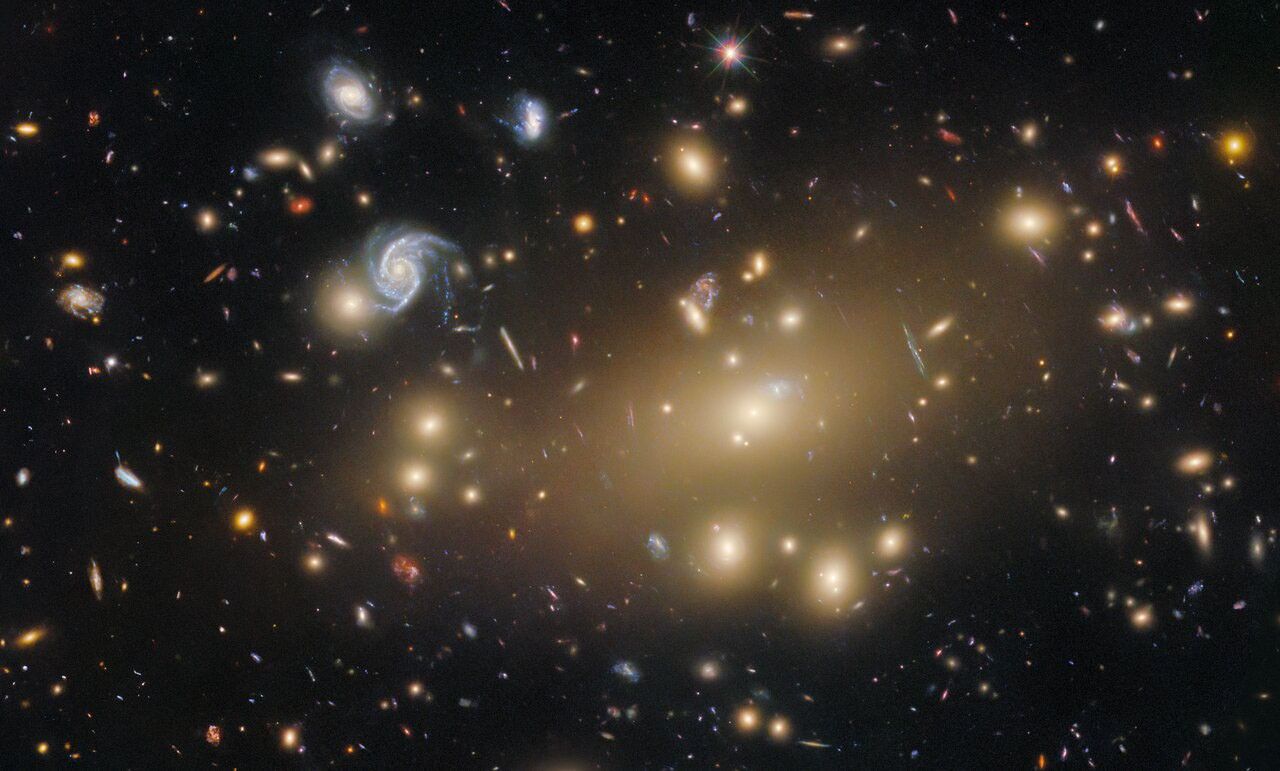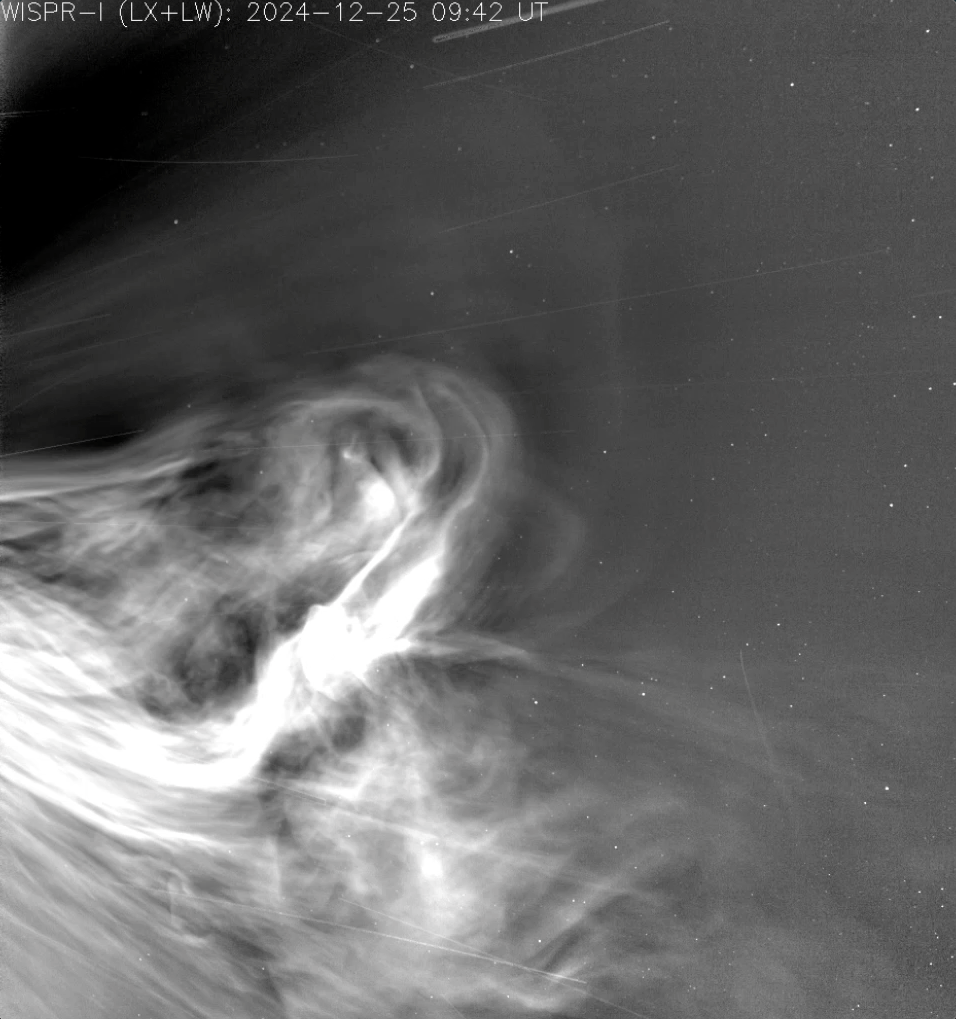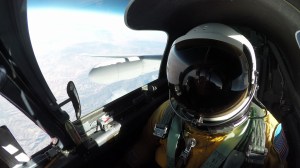NASA SCoPE Awards Collaborative Projects
The NASA SMD Community of Practice for Education (SCoPE) team offers bi-annual Seed Grant selections of $5K - $20K to scientists and engineers for projects that can bring their science to national audiences with the help of a NASA Science Activation (SciAct) Project Team (check out the teams: https://science.nasa.gov/learners/science-activation-teams). Each application cycle starts with a notice of intent on January 31st and July 31st, and the proposal windows close on February 28th and August 30th, respectively. Awardees are notified within 30 days after the application close date. NASA SCoPE plans to award up to ~12 projects per year, with an expectation of ~6 every six months, depending on interest. Learn more about SCoPE Seed Grant opportunities: https://scope.asu.edu/the-seed-grant/
SCoPE is pleased to announce three Seed Grant Award recipients for the 2022 spring session. These awardees were competitively selected out of nine total applicants. They come from all areas of science and will work collaboratively with and provide resources and expertise to their NASA SciAct Team partners – experts in science communications and education that can assist these grant recipients in translating their science to effectively reach diverse audiences.
Learn more about this year's awardees:
_____
Allison Cusick, PhD Candidate of Biological Oceanography from the Scripps Institute of Oceanography, in collaboration with SciAct’s Ocean Community Engagement and Awareness using NASA Observations and Science (OCEANOS) project.
This new collaboration, Phytoplankton Research Outreach in collaboration with Ocean Community Engagement and Awareness using NASA Observations and Science (PRO OCEANOS), will focus on demonstrating the connectedness of marine ecosystems and Antarctica’s role in the health of our planet. PRO OCEANOS will introduce Puerto Rican students to the Fjord Phyto Citizen Science project’s sampling protocols for gathering data on water properties, such as salinity, temperature, chlorophyll-a, meltwater, and ocean color, facilitating comparisons between the Caribbean and Antarctic ecosystems.
PRO OCEANOS aims to inspire students to pursue careers in STEM through shared experiences with Fjord Phyto researchers and their path as first-generation university and Latin American graduate students. In this way, younger generations can feel connected to their local coasts, polar oceans, and want to be a part of the decisions that affect our planet. PRO OCEANOS will make oceans more inviting, more accessible, and bring the oceans to more youth.
_____
Dr. Rhiannon Mayne, Chair of Meteoritics and Planetary Science and Curator for the Oscar Monnig Meteorite Collection and Gallery of Texas Christian University, in collaboration with SciAct’s Native Earth | Native Sky project
Meteorites lend themselves well to place-based education, which connects student learning to their surroundings. Establishing learning as personally relevant increases engagement and strengthens ties within the local and global community. A meteorite’s story can serve as the foundation for understanding the entire history of the meteorite, including its formation – a concrete example of cultural relevance in planetary science and STEM.
This new collaboration, Native Lands, will develop free-choice STEM resources that support middle school students and teachers of Choctaw, Chickasaw, and Cherokee Nations, including a website that focuses on meteorites found on the lands of these three Oklahoma Native American Nations participating in Native Earth | Native Sky (NENS) (and in alignment with the NENS curricula model and culturally-relevant requirements).
____
Dr. Veselin Kostov, Research Scientist of Exoplanet Astrophysics at NASA Goddard Space Flight Center, in collaboration with the SciAct project team, NASA Community College Network (NCCN)
The Planet Patrol is a citizen science project that analyzes the enormous amount of data from the Transiting Exoplanet Survey Satellite (TESS). TESS measures the brightness of tens of millions of stars across the sky. Automated methods lack the insight to discover unique features and interesting phenomena, and the complexity and size of the dataset make it challenging for a traditional research groups to analyze.
Planet Patrol was designed to explore, analyze, and gain insight into the science of transiting exoplanets. Participants learn to interrogate, transform, and act on multiple NASA data assets related to exoplanets and are powered to autonomously perform astrophysical research. This project will extend the model to community colleges through a partnership with SciAct’s NCCN project. Together, they will develop an interactive activity module and resources suitable for Astronomy 101-type classes to be incorporated into the NCCN resource database.
______
Congratulations to each of these 2022 SCoPE Seed Grant Award recipients!
